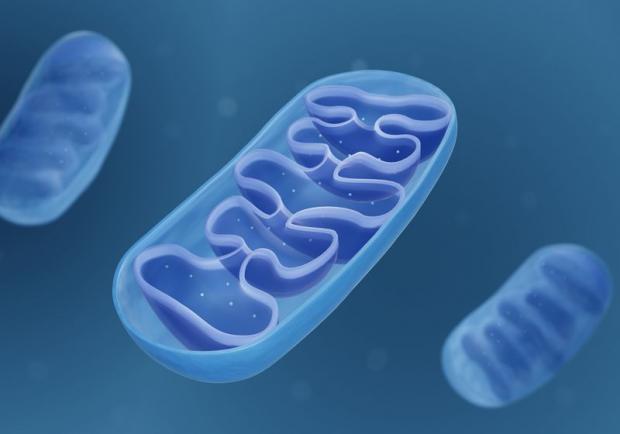
Breaking News
 Iran (So Far Away) - Official Music Video
Iran (So Far Away) - Official Music Video
 COMEX Silver: 21 Days Until 429 Million Ounces of Demand Meets 103 Million Supply. (March Crisis)
COMEX Silver: 21 Days Until 429 Million Ounces of Demand Meets 103 Million Supply. (March Crisis)
 Marjorie Taylor Greene: MAGA Was "All a Lie," "Isn't Really About America or the
Marjorie Taylor Greene: MAGA Was "All a Lie," "Isn't Really About America or the
 Why America's Two-Party System Will Never Threaten the True Political Elites
Why America's Two-Party System Will Never Threaten the True Political Elites
Top Tech News
 How underwater 3D printing could soon transform maritime construction
How underwater 3D printing could soon transform maritime construction
 Smart soldering iron packs a camera to show you what you're doing
Smart soldering iron packs a camera to show you what you're doing
 Look, no hands: Flying umbrella follows user through the rain
Look, no hands: Flying umbrella follows user through the rain
 Critical Linux Warning: 800,000 Devices Are EXPOSED
Critical Linux Warning: 800,000 Devices Are EXPOSED
 'Brave New World': IVF Company's Eugenics Tool Lets Couples Pick 'Best' Baby, Di
'Brave New World': IVF Company's Eugenics Tool Lets Couples Pick 'Best' Baby, Di
 The smartphone just fired a warning shot at the camera industry.
The smartphone just fired a warning shot at the camera industry.
 A revolutionary breakthrough in dental science is changing how we fight tooth decay
A revolutionary breakthrough in dental science is changing how we fight tooth decay
 Docan Energy "Panda": 32kWh for $2,530!
Docan Energy "Panda": 32kWh for $2,530!
 Rugged phone with multi-day battery life doubles as a 1080p projector
Rugged phone with multi-day battery life doubles as a 1080p projector
 4 Sisters Invent Electric Tractor with Mom and Dad and it's Selling in 5 Countries
4 Sisters Invent Electric Tractor with Mom and Dad and it's Selling in 5 Countries
The mitochondria are more than just the "powerhouse of the cell" – they initiate immune...

For decades, mitochondria have been relegated to the role of mere "powerhouses of the cell," churning out energy while the immune system's more glamorous players—white blood cells, antibodies, and cytokines—took center stage. But groundbreaking research is shattering this narrow view, revealing mitochondria as master regulators of immunity, orchestrating defenses against bacterial invaders with precision. Far from being passive energy factories, these tiny organelles act as cellular watchtowers, detecting microbial threats and triggering life-saving counterattacks. The implications are staggering: dysfunctional mitochondria may explain why autoimmune patients suffer recurrent infections, and boosting mitochondrial function could revolutionize infection treatment.
Key points:
Mitochondria act as metabolic sensors, detecting bacterial byproducts like lactate to initiate immune responses.
Neutrophils, the body's first responders, rely on mitochondrial signals to deploy sticky DNA traps (NETs) that ensnare and kill bacteria.
Dysfunctional mitochondria in lupus patients impair NET production, leaving them vulnerable to infections despite an overactive immune system.
The discovery opens doors for therapies that enhance mitochondrial sensing to fight infections or suppress harmful immune overreactions.
Nourishing the mitochondria with herbal medicines and phytonutrient-based therapies could empower patients struggling with compromised immune function.
The immune system's hidden command center
Neutrophils, the most abundant white blood cells, are the immune system's rapid-response team, rushing to infection sites to engulf and destroy pathogens. One of their deadliest weapons is the neutrophil extracellular trap (NET)—a spiderweb-like mesh of DNA and toxic proteins that traps bacteria like flies in amber. Until now, scientists believed NETs were triggered primarily by cellular damage. But new research reveals a far more sophisticated system: mitochondria act as metabolic spies, intercepting bacterial distress signals and ordering NET deployment.
The key to this communication? Lactate—a molecule long associated with muscle fatigue but now exposed as a bacterial SOS signal. Many pathogens, including Staphylococcus aureus, excrete lactate as they metabolize nutrients inside immune cells. When mitochondria detect this lactate, they sound the alarm, prompting neutrophils to eject NETs and expel the trapped microbes for other immune cells to finish off. Block this mitochondrial sensing, and bacteria slip through the defenses like thieves in the night.
When mitochondria fail: The autoimmune connection
This discovery sheds light on a cruel paradox: why patients with systemic lupus erythematosus (SLE)—a disease marked by hyperactive immunity—suffer relentless infections. The answer lies in their mitochondria. In lupus patients, these organelles grow deaf to bacterial lactate, failing to trigger NET production. The result? Pathogens replicate unchecked, while the immune system remains stuck in a self-destructive loop, attacking the body instead of invaders.



